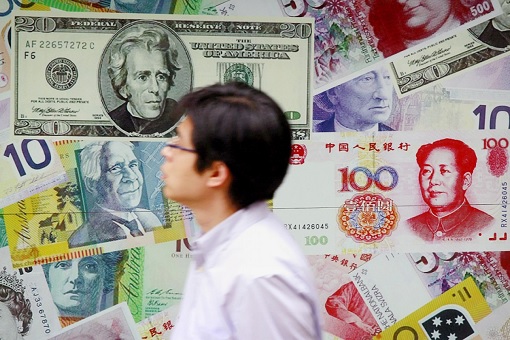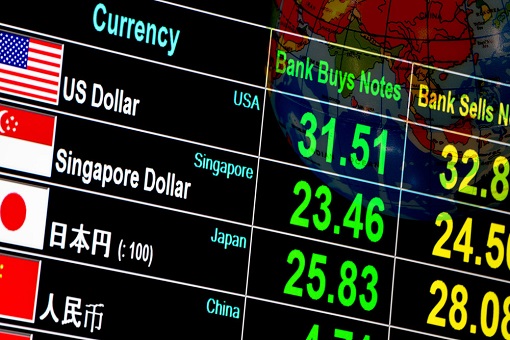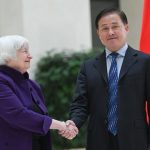You may be familiar with stock trading but struggle to get your head around the concept of forex trading. Forex trading is similar to sports betting, only that instead of betting on a team to lose or win, you are betting on one currency to strengthen or weaken relative to another. It is an exciting investment option if you want to expand your portfolio. There are several forex brokerage firms in the UK where you can open an account and start trading.
Forex Brokers
Forex brokers are agencies that facilitate forex trading. They hold investor money in accounts and make changes in response to movements in currency valuations. Forex brokers make money by charging commissions, access to expert advice, and withdrawal requests. Some brokers charge zero commissions but hide fees in the spread and other transactional costs.
Currency Pairs
Forex traders make money by speculating on currency pairs. Currency pairs compare the value of two currencies by placing the base currency on top and the quote currency at the bottom. This is denoted in a fractional relationship. For example, a GBP/USD 1.31000 implies that the British pound is trading at 31% higher than the dollar. The currencies can also be set in the reverse order to create a new currency pair.
Traders take long or short positions on currency pairs. A long position makes money when the exchange rate (ratio) rises and lose when it goes down. Conversely, short traders make a profit when the exchange rate falls and lose money when it rises. Investors can choose currency pairs from up to 60 currencies, but most participants prefer the currency pairs with the highest trade volumes.

The Spread
Forex brokers often indicate two prices: the buying price and the selling price. The difference between the two figures is called the spread. Most brokers make money by adding a small margin to the spread.
Watch Out for The Pip
The last two decimals in the currency ratio (pip) are drawn in large print because they indicate how a currency is performing relative to the base currency. Profits and losses are calculated based on the pips earned or lost after taking a position.
Forex traders need to select a lot size when taking a position. The lot is the smallest available trade package for each currency pair. Lot sizes can range from 100k to 10k, depending on the broker. The larger the lot, the higher the chances of making a profit or a loss.
For example, if the pip for GBP/USD = .00001 you make 1pip by buying £100,000 at 1.31000 and selling at 1.31001 this equates to a (.00001/1.31000) x100,000 = £8.9142 profit.
Conversely, if your lot is £10,000, then you make (.00001/1.31000) x 10,000 = £0.89142 profit.
Margin
Margin is the amount you deposit in your forex account in order to trade on a particular lot. A lot may only require a margin of 3.5% to be opened. This means you only need to deposit £3,500 to make a position with a £100,000 lot.
Hedging
Forex traders use hedging to reduce exposure to risk. Hedging involves taking different positions on a variety of currency pairs so that losses on one pair are offset by gains on another pair. Most traders use currency correlations when selecting hedging options. For example, a trader can choose GBP/USD and EUR/USD because they are positively correlated.

Factors to Consider When Selecting A Broker
Security
Security is important because you will be giving the broker money and sensitive personal information when opening a trading account. Go for brokers with a reputation for strong security infrastructure, including cybersecurity and protection of user deposits.
Regulation
The UK government requires all forex brokers to be registered with the Financial Conduct Authority (FCA). However, some brokers are registered abroad but still accept UK clients. If you trade with such brokers, you will have no recourse if anything goes wrong.
To determine if a broker is registered in the UK, check for its registration number in the disclosure text at the bottom of the homepage of its UK website. Then go to the FCA website and check if the registration number is valid.
Minimum Deposit and Transaction Fees
Brokers have different requirements for minimum deposit and charge varying amounts of transactional fees. Before opening an account, research the deposit requirements, transactional fees, and withdrawal/closure policies of different brokers. You can visit review websites and other investor platforms that provide information on forex trading.
Educational Resources
Reputable brokers often offer users plenty of educational materials to help them hone their trading skills and make smart trading decisions. Look for sites with an education section full of demos, tutorials, and webinars on forex trading and how to use their platform. Some brokers also offer Demo accounts that aspiring traders can try before opening real accounts.

|
|
September 21st, 2021 by financetwitter
|


|

|

|

|

|

|




























Comments
Add your comment now.
Leave a Reply